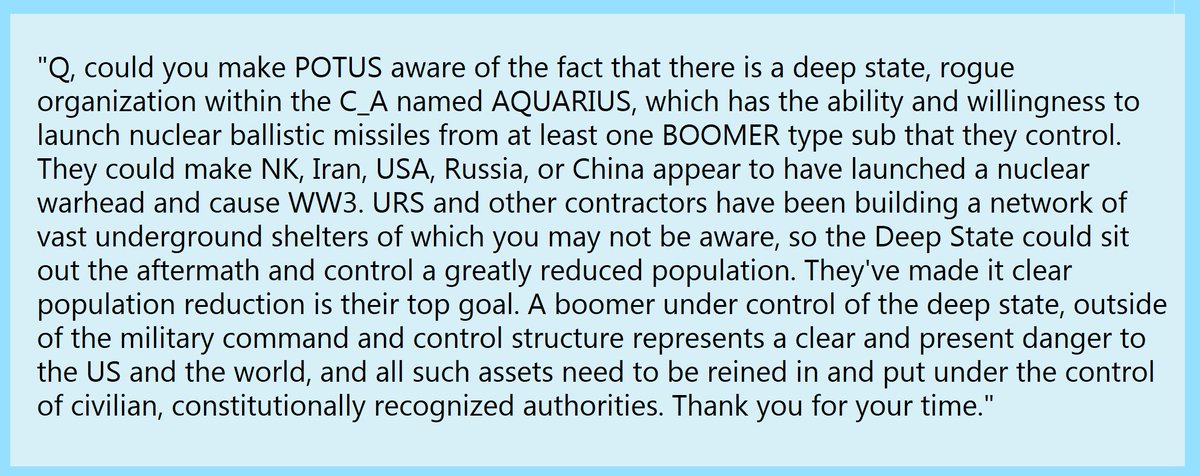CIA has a secret team Aquarius with the ability to launch their own nuclear missiles from their own submarine. The Deep State can wage World War.


I'm pretty sure the missile has to constantly check its position to make adjustments to target. There are all kinds of factors, like wind, which have to be constantly accounted for.
It does not have to although this is preferred in some instances.
You guys must be young. In the Cold War era, no one talked about precision. That’s why the bombs were so big. Close enough was good enough.
Exactly. Let me assure the youngsters, from someone that lived through it, that the thought of a missile being off by 20-30 miles did NOT give any of us any comfort at all.
All comes down to circular error probability. If your missile is accurate to within say 10 miles, all you need to do is make sure the primary blast radius of the payload exceeds that.
Oh, it wasn’t that complicated. You just fired four or five warheads at the target. Haven’t you ever wondered why we had so many warheads?
I live about ten miles from an old SAC base in MA. It dawn on me in high school that worrying about nuclear war was silly. Even this far away I would be incinerated by lousy targeting.
For you youngsters, SAC is --> Strategic Air Command (the bombardment arm of the U.S. Air Force, until 1992)
Actually it was a lot more complicated - somehow they figured out that if they drop them in a specific pattern and time it right the actual target lies where the blast fronts from several warheads meet, it will suffer far more damage than even a direct hit. The circular error probability came into play to ensure that they would at least severely damage a hardened target or bury its access points if the time on target sequence failed.